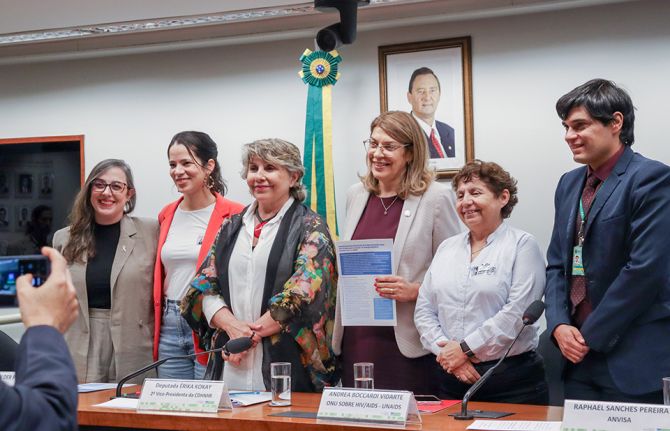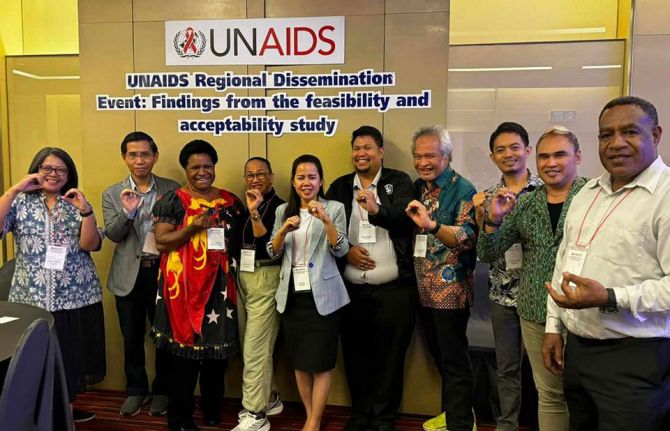

Feature Story
Lower prices needed for new HIV prevention medicine in Brazil
09 September 2025
09 September 2025 09 September 2025Civil society representatives are demanding an urgent price reduction for long-acting injectable HIV medicines which prevent HIV.
During a public hearing at the Chamber of Deputies in Brazil, representatives called for strategies to expand access to innovative injectable HIV medications, including lenacapavir and cabotegravir, which have demonstrated more than 95% efficacy in preventing HIV infection.
The discussion was organized by The Committee on Human Rights, Minorities, and Racial Equality and brought together representatives of pharmaceutical companies, the government, and civil society.
“We are talking about rights,” stated Congresswoman Erika Kokay. “It is not a consumer relationship, it is a relationship of human rights and health that allows the population to take ownership of their own research. We are talking about a country where more than 10,000 people die every year due to AIDS-related illnesses.”
Despite Brazil being one of the countries which participated in the lenacapavir clinical trials (together with Argentina, Mexico, and Peru) it has been excluded from the list of countries that have received a licence to produce its generic version.
“Brazil was excluded from the licence because it is considered a middle-income country, which does not reflect the intense inequalities that exist in Brazil,” pointed out Susana Van der Ploeg, coordinator of Working Group on Intellectual Property. “In 2022, 23% of new HIV infections occurred in countries that were excluded from the licence, including countries that participated in clinical studies,” she added.
According to UNAIDS, Latin America is one of three regions in the world where the annual number of new HIV infections has increased, representing 13% of all new HIV infections between 2010 and 2024.
“When an innovation can save people’s lives but does not reach the people who need it, can we really consider it an innovation?” said Luciana de Melo, HIV/AIDS Coordinator at the Ministry of Health. “Price is a key issue in the incorporation of medicines to the country’s health system”
Cabotegravir, registered by ViiV Healthcare, is an injection administered once every two months to prevent HIV. The drug was approved by the Brazilian Health Surveillance Agency (ANVISA) in 2023 and launched on the Brazilian private market in August 2025. Currently, its average cost is R$ 4,000 per dose (U$ 740), around 2,5 times the minimum wage in Brazil. According to Brazilian Institute of Geography and Statistics, 31.8% of the population lived on an income between one and three minimum wages in 2023. There is still no date for the drug to be offered through Brazilian health system.
Lenacapavir, from the pharmaceutical company Gilead, is administered once every six months and is in the process of being registered for use in HIV prevention. Gilead has not yet announced the price of the drug to be used for HIV prevention in Brazil but its cost in the United States for treatment was recorded at over US$ 28,000 per person per year.
An article published in The Lancet magazine presents a different perspective for the generic version. The study projects that the cost of generic lenacapavir could range from as low as US$ 35 to US$ 46 per person per year. In addition, growth in demand could reduce this amount to US$ 25 per person per year if there were a committed demand of five to ten million people.
“We will not be able to reach our goals if we do not view access to health as a human right,” said Andrea Boccardi Vidarte, UNAIDS Country Director, Brazil.
Watch the full hearing (in Portuguese): https://www.youtube.com/watch?v=bcBecwT-WzY



